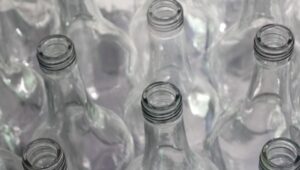More than half of the world population think that pollution and environmental degradation are of great concern. And almost all believe that we should all make an effort to reduce the amount of waste, even at the risk of shelling out a few extra bucks. Plastic is universally perceived as highly polluting.
For the future, the research still reveals, people is quite proactive: they suggest the use of compostable/biodegradable bioplastics (28 percent), a return to bulk, glass and paper (17 percent), as well as that to returnable packaging (16 percent).
Table of Contents
5 sustainable alternative to plastic-packaging
Plastic, in short, is to be banned. How, then, to achieve sustainable packaging? Here is what the market offers today.
1. Cornstarch and vegetable oils
Together with some additives they create a family of biodegradable and compostable bioplastics, known as Mater-Bi and patented by Novamont.
This product is sold in granules and is processable in a similar way to other plastics. The biodegradation process, carried out by microorganisms, produces water, carbon dioxide and methane.
It is used in the production of packaging, toys, cutlery, tableware and bioplastic bags, replacing traditional polyethylene bags.
2. Beeswax
For some time now, aided by the aforementioned return to bulk and the search for reusable materials, one of the trends to be applied (upstream) is to use organic cotton cloths, treated with beeswax and oil, for food storage.
Their task is to zero out the consumption of disposable films and containers. And consequently decrease production waste and plastic pollution.
Cloth can be used to preserve food (raw or cooked) and placed in direct contact with the food allows it to breathe, thus preventing the formation of moisture and mold, while the wax combats bacterial growth.
3. Algae
In recent times one of the most functional materials is a gelatinous derivative called agar, composed of seaweed.
Easy to grow, this polysaccharide has minimal environmental impact because it is a byproduct of red algae processing.
And it is already known in the kitchen as a natural gelling agent. In the case of packaging, with the addition of water it can be easily molded, even eaten. And dissolve using only hot water.
4. Leaves
Less is more even in packaging. And something of this is known by the small Thai supermarket chain Rimping, which last year relaunched the good habit of using banana tree leaves instead of film to package products in stores in the north of the country.
By holding them together with a ribbon of natural fibers, it achieved a 100 percent sustainable result and a decidedly original look for all the food in the fruit and vegetable department.
5. Latest innovations
In the pipeline, new compostable countertop papers, formed from pure cellulose paper and Mater-Bi (again from Novamont) as well as organic plant-based biopolymers from the Faenza-based startup Iuv, made from agro-industry waste and naturally biodegradable, form the basis of the Columbus Egg edible packaging system.
Also capable of lengthening the shelf life of products such as fruits and vegetables by preventing the appearance of mold, yeast and bacteria.
Read also: Single-use plastic, the countries that have banned it












